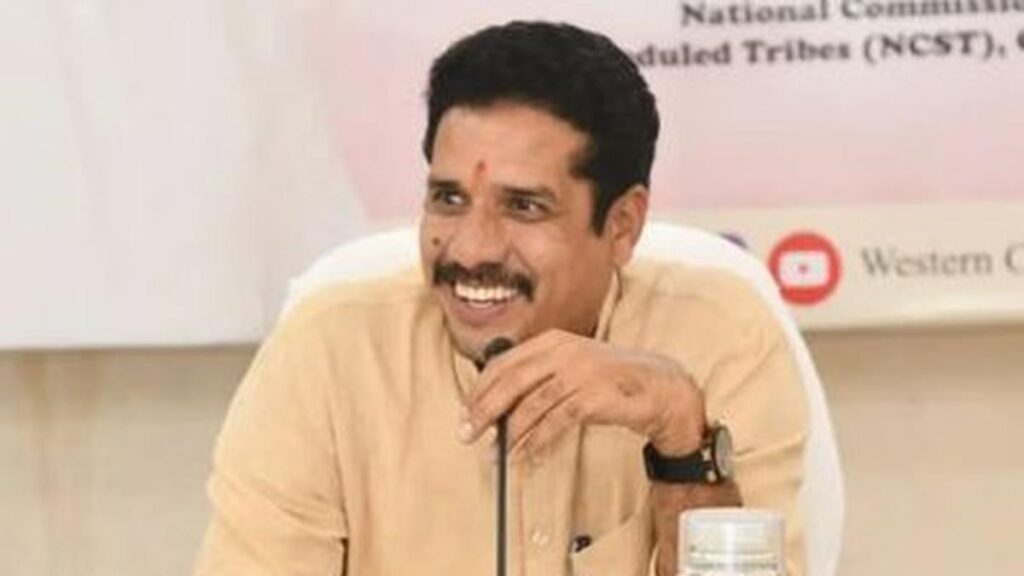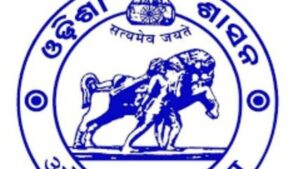
National Commission for Scheduled Tribes Member Jatothu Hussain Nayak. File.
Across Andhra Pradesh, Telangana, and Odisha, temple management executive officers are working carelessly, many don’t even implement the reservation rosters, and there is partiality against SC and ST employees in service matters, promotions, said National Commission for Scheduled Tribes Member Jatothu Hussain Nayak, who took charge in March this year and began working extensively in States south of the Vindhyas just after the 2024 Lok Sabha election.
In an exclusive interaction over the phone with The Hindu this week, Mr. Nayak, a BJP politician from Telangana, spoke of the significance of having a Member of the Commission from a southern State, his experience of reviewing temple management boards during official visits, and a focus on raising awareness about the Commission’s work, which he said had led to increased complaints now being filed with the NCST.
Mr. Nayak said he had conducted reviews of two States, about 26 PSUs, and 48 districts across the country in his time with the Commission so far. “In States I have visited such as Maharashtra, Karnataka, Telangana, Andhra Pradesh, Odisha and Kerala, the most common complaint poor people from ST communities have had is with regard to forest pattas and land issues, followed by service matters,” Mr. Nayak said.
But in his visits, Mr. Nayak has given special attention to checking whether temple managements across these States are following mandated rules on reservation and addressing complaints of ST employees working at various posts within the management structure. He has already led reviews of the Tirumala Tirupati Devasthanams (TTD), Sree Seetha Ramachandra Swamy Devasthanam in Bhadrachalam, Srisaila Devasthanam, and the Puri Jagannath Temple.
“In so many temples, they are not using rosters at all. Bhadrachalam predominantly has ST population and it is located in the jungles. They have no regard for reservation. In Srisailam too, this is the case. This is also in the jungle area. There should be more right for STs of the area for their development. In Tirupati, the situation is very bad,” Mr. Nayak said.
Referring to the situation at TTD, Mr. Nayak said that the NCST was informed about a host of issues relating to the welfare of SCs and STs there during a review in August this year. Among the list of complaints were demands to allow SCs and STs to be considered for religious posts in the temples, adequately inform SCs and STs about stipend scheme of the TTD for those studying the Vedas, lack of reservation in shop and hawker license allotments, and a near absence of a grievance redressal mechanism for SC/ST staffers.
“When we took stock of the issues and called the EO to explain what is happening, they kept evading and then went to the High Court to get a stay order. We will fight it tooth and nail in the court. How can the court stay proceedings of a Commission, which is itself exercising its Constitutional powers as a Civil court?” Mr. Nayak said, adding, all temples he has reviewed have had similar issues.
“In Puri Jagannath temple’s case also, officials are not responding to our summons, many don’t have relevant records that we are calling for on reservations, schemes for welfare of SC and ST employees,” Mr. Nayak said.
Mr. Nayak told The Hindu that he has been able to use his position at the NCST to take the Commission’s services to more and more people in the southern States.
“There have been many more Commission members appointed from the North, so some work has been done there. But in the south, awareness about the NCST and what it can do for the people is relatively low,” he said, adding that he had been able to significantly raise the number of complaints coming from people in States like Telangana and Andhra Pradesh.
“In Telangana, when I took charge, only 30-37 complaints were there. Now, we have received over 800 complaints. In Andhra Pradesh too, the number of complaints has gone up to 600 from about 70 when I started off,” Mr. Nayak said.
Published – December 21, 2024 11:29 pm IST



